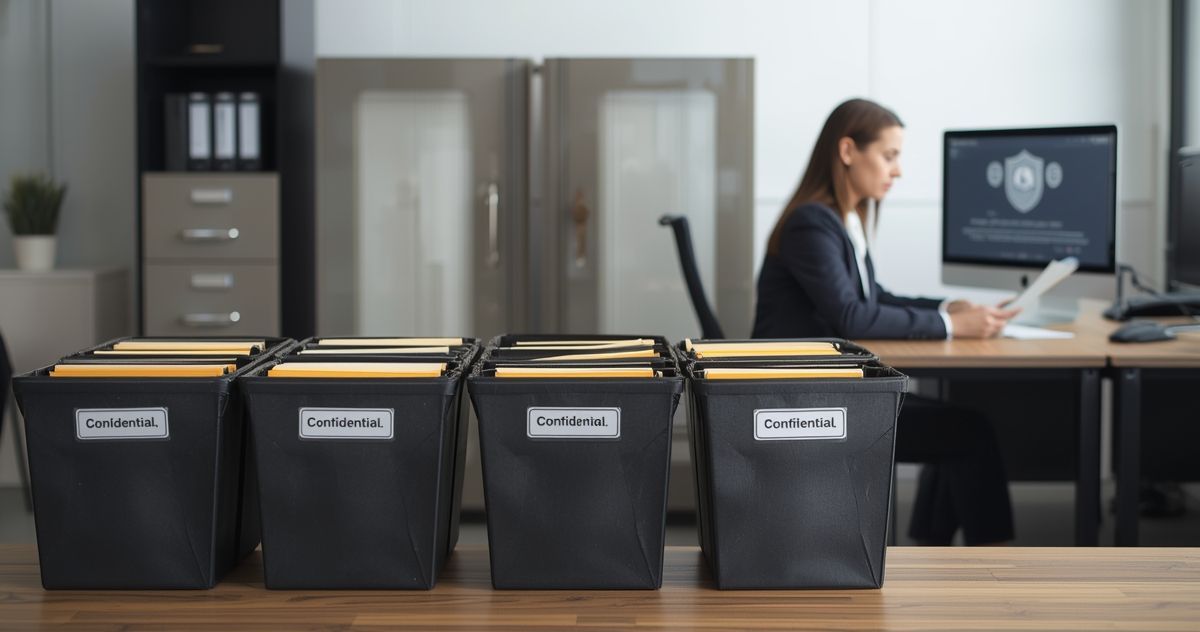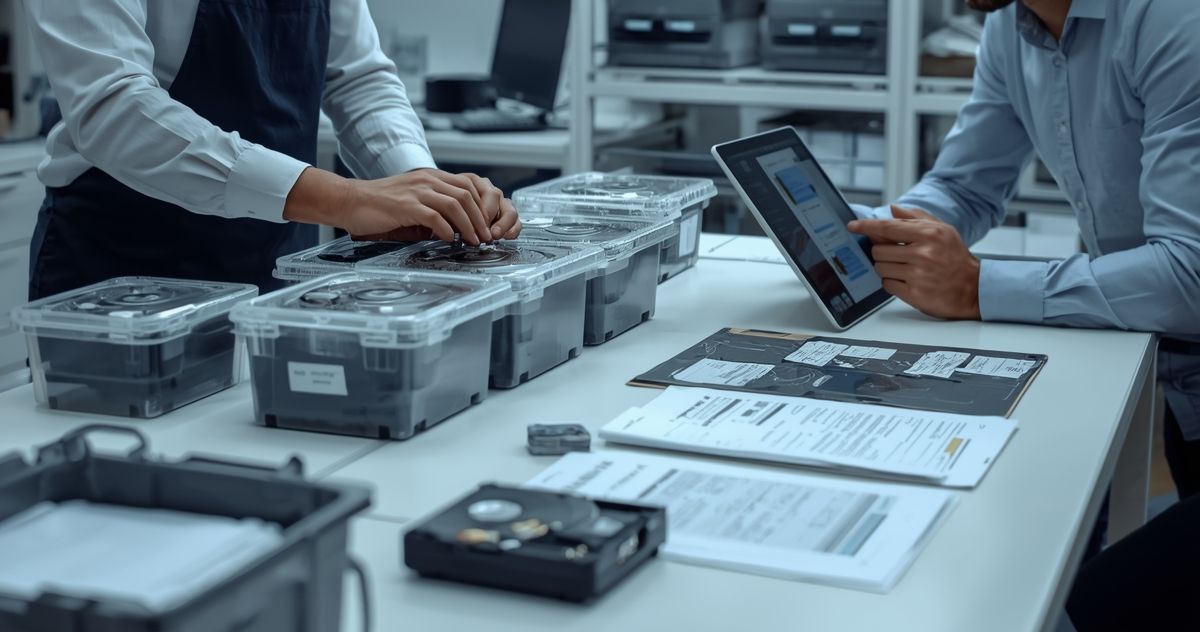Hard Drive Destruction: What You Need to Know
Hard Drive Destruction: What You Need to Know
The era of digital transformation has revolutionized the way we think about data management. With organizations accumulating vast amounts of sensitive information, the importance of secure data disposal has surged.
Hard drive data destruction has emerged as a crucial practice in the world of cybersecurity, ensuring that data, once it has ended its retention life, is obliterated beyond retrieval—whether for legal compliance, protection of intellectual property, or safeguarding personal information.
However, amidst the buzz around data shredding and industrial hardware crushers, there’s a tangle of questions and considerations many professionals face.
In this comprehensive guide, we will unravel everything you need to know about hard drive destruction—from the necessity and methods to industry best practices and environmental impact.
Understanding the Necessity of Hard Drive Destruction
The need for hard drive destruction springs from the dire consequences of data breaches. According to IBM’s Cost of a Data Breach Report, the average total cost of a data breach in 2023 was 4.45 million USD. This is not just a matter of financial loss but also entails severe reputational damage and legal implications.
But what warrants hard drive destruction? Here's a closer look at the key reasons:
Legal Compliance
Many sectors operate under strict regulatory frameworks, such as HIPAA for healthcare and GDPR in the European Union. These laws mandate the secure disposal of confidential information, failing which, organizations face hefty fines and sanctions.
Intellectual Property Protection
For businesses, proprietary data is a high-stakes asset. Irreversible destruction ensures that no trade secrets or R&D blueprints fall into the wrong hands.
Personal Data Protection
The value of personal data has elevated concerns about identity theft and privacy violations. Securely destroying hard drives is a preeminent measure to protect sensitive personal information.
Methods of Hard Drive Destruction
The effectiveness of hard drive destruction methods can vary, as can their cost and suitability for different types of industries. Here's a comparison of common destruction techniques:
Shredding
Hard drive shredding physically destroys the hard drive by shredding it into tiny pieces. Industrial shredders can deliver this at a large scale, and it's one of the most secure approaches.
Degaussing
This method uses strong magnetic fields to demagnetize the disks, effectively scrambling the data. It’s an efficient technique but not suitable for solid-state drives (SSDs) without the right equipment.
Crushing
Crushing hard drives involves using heavy machinery to break the platters, which contain the data, and the hard drive’s mechanism. This method is quick and yields high levels of security, but can be costly and not always environmentally friendly.
Best Practices in Hard Drive Destruction
Adhering to best practices when it comes to hard drive destruction is non-negotiable. It's a critical procedure that must be executed with precision to ensure compliance and confidence in data security.
Documentation and Chain of Custody
Maintaining detailed records of every hard drive’s destruction process ensures an accountable trail, which is vital for audits or in the event of a data breach investigation.
Regular Audits and Review
Like any other security measure, hard drive destruction processes should be audited and reviewed regularly to ensure they are up to the current industry standards and organizational needs.
Training and Awareness
Employees are often the first line of defense against data breaches. Proper training programs create awareness about the importance of certified hard drive destruction and the correct procedures to follow.
Environmental Impact and Sustainable Practices
The environmental implications of hard drive destruction are often overlooked. The e-waste generated by discarded electronics poses significant ecological risks. Organizations must seek sustainable alternatives, such as recycling, and adhere to industry standards that minimize the carbon footprint.
Electronic Waste Regulations
Understanding and complying with e-waste disposal regulations is crucial. It involves finding certified e-waste recycling plants and ensuring that materials are recycled responsibly.
Sustainable Destruction Methods
Innovations in technology have led to the development of more sustainable hard drive destruction methods. Some companies offer services that include environmentally friendly waste disposal options, ensuring that metallic and plastic parts are re-purposed or recycled.
The Future of Hard Drive Destruction
Technology is constantly evolving, and with it, the methods and best practices for hard drive destruction. Future advancements may include more efficient and environmentally friendly techniques, improved traceability, and the integration of AI and machine learning to optimize the process further.
Staying ahead of the curve will be imperative as organizations strive to protect their data while also attending to their corporate social responsibilities. The future of hard drive destruction is not just rooted in increasing security but also in reducing environmental impact and aligning with the ethical principles of the organizations and individuals involved.
In Conclusion
Hard drive destruction is more than a process; it’s a commitment to ensure data is permanently and securely removed from end-of-life storage media.
It requires a multi-faceted approach that encompasses security, compliance, sustainability, and anticipation of future challenges.
Organizations that make informed decisions about hard drive destruction, execute it with precision, and remain flexible to future innovations, will find themselves at the forefront of safeguarding digital assets and the planet. This is not just a best practice—it’s a necessity in our data-driven world.
Ready to Destroy your Hard Drive Securely?
At Data Shredder Corporation, we understand how crucial it is to destroy sensitive data securely and e-waste recycling in Massachusetts. We're here to offer you the best data destruction and electronics recycling services in Massachusetts, ensuring your peace of mind while contributing to the planet's health.
Your trust is our top priority, and we're dedicated to safeguarding your information with our certified, dependable solutions. Before a security breach even whispers your name, give us a call at
(508) 915-7235 or fill out our
contact form. Let's get you set up with our services, starting your journey towards complete data security.











Share On: